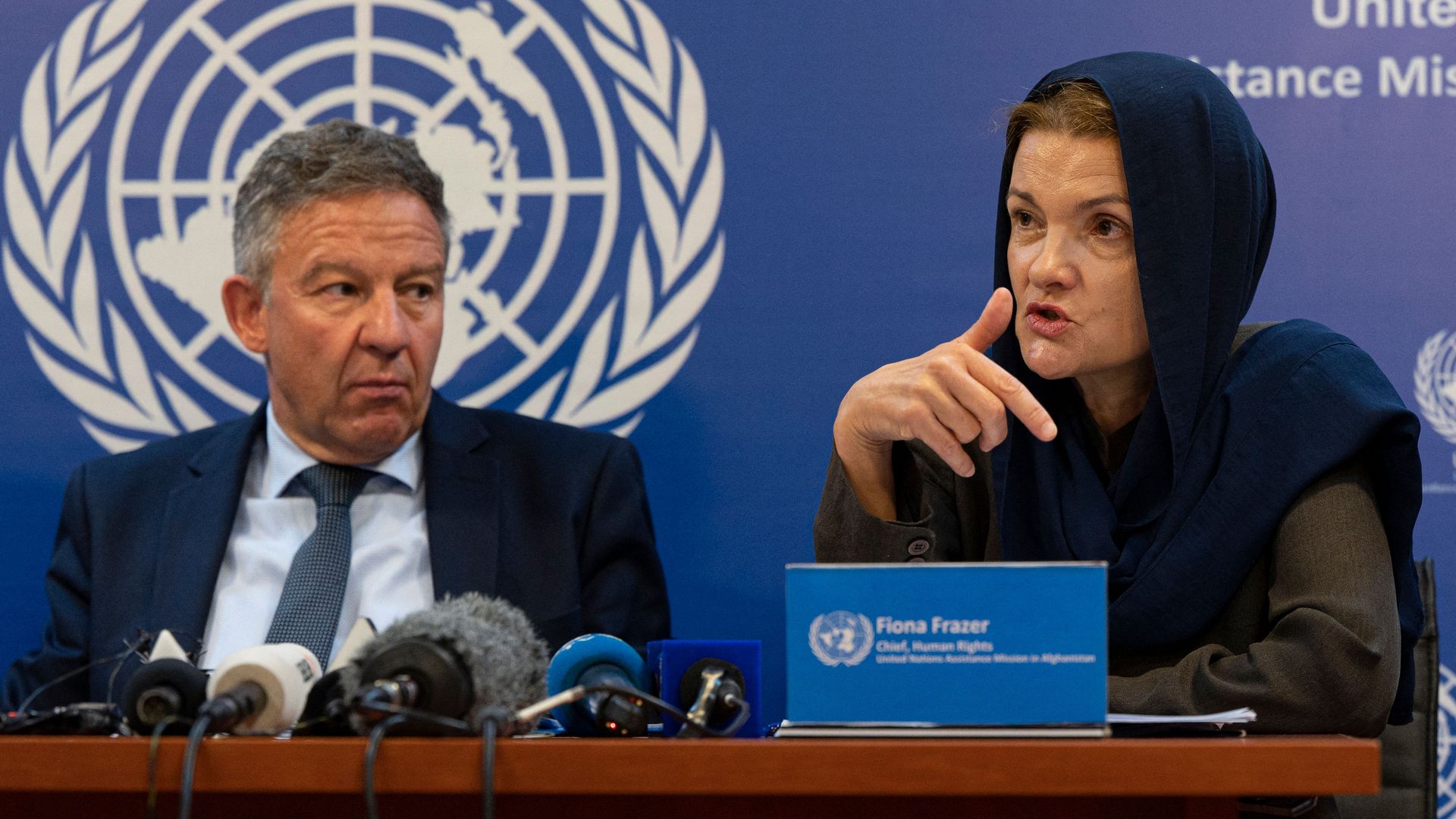UN rebukes Afghan bank’s cash remarks as "misleading and unhelpful"
Add Axios as your preferred source to
see more of our stories on Google.

Fiona Frazer, UNAMA human rights chief, speaks next to Markus Potzel, acting head of UNAMA, during a press conference in Kabul, Afghanistan, in July 2022. Photo: Wakil Kohsar/AFP via Getty Images
The United Nations issued a rebuke Saturday against Afghanistan’s Taliban-controlled central bank for remarks it made about cash entering the country for humanitarian work, calling the comments "misleading and unhelpful."
Driving the news: Afghanistan's central bank had tweeted earlier Saturday that a package of $40 million of humanitarian aid had arrived and been deposited in a commercial bank in Kabul. The tweet was accompanied by photos of stacks of cash.
- The bank added that it "appreciates any principled move that will bring currency to the country and help the needy in the society."
State of play: "Cash shipped to #Afghanistan by the UN is placed in UN accounts in a private bank. It is used by UN agencies to support its humanitarian work," the United Nations Assistance Mission in Afghanistan (UNAMA) tweeted in response.
- "Announcements by non-UN entities about UN fund shipments are misleading & unhelpful," it added.
- According to a UNAMA information sheet, the UN transfers cash shipments to Afghanistan due to the "disruptions to international banking transfers and liquidity issues" that have plagued the Afghan economy since the Taliban takeover.
- The money is placed into a private bank and then "distributed directly to the United Nations entities, as well as to a small number of approved and vetted humanitarian partners in Afghanistan," the information sheet stated. None is placed into the central bank or given to the Taliban's de facto authorities.
Since December 2021, the U.N. has brought in $1.8 billion in funds for it and its partners to do their work, per the information sheet.
- Following the Taliban takeover, Afghanistan saw much of its foreign aid dry up and its foreign assets frozen. A litany of sanctions also meant that many foreign banks became reluctant to process foreign currency transactions involving Afghan banks.
The big picture: Recent weeks have seen a spike in tensions between the UN and the Taliban owing to the latter's new bans on female education and employment.
- After the Taliban established a new government in the country in September 2021, the group initially claimed that it would honor women's rights within the "frameworks" of Islamic law.
- However, the group has moved quickly to restrict girls' access to secondary school, their movement and employment.
- In November, the Taliban banned women from using parks and gyms.
- In December, the Taliban announced a ban on women attending the country's public and private universities and, less than a week later, banned women from working for foreign and domestic non-governmental organizations.
- The United Nations Security Council issued a statement last month condemning the Taliban and calling for it to "swiftly reverse these policies and practices, which represent an increasing erosion of the respect of human rights and fundamental freedoms."
